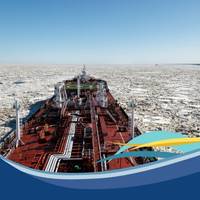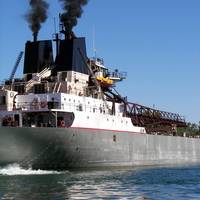
IMO
There are numerous organizations with the abbreviation "IMO," but assuming you are referring to the International Maritime Organization (IMO), here's a detailed overview:
International Maritime Organization (IMO)
The International Maritime Organization, often abbreviated as IMO, is a specialized agency of the United Nations responsible for regulating shipping. The IMO was established in 1948 and came into full force in 1959. Its headquarters are located in London, United Kingdom.
Mission and Objectives
The IMO's primary mission is to create a regulatory framework for the shipping industry that is fair, effective, universally adopted, and universally implemented. The organization focuses on several key objectives:
- Safety and Security: Establishing international safety regulations to ensure the security of life at sea.
- Environmental Protection: Setting standards to minimize the environmental impact of shipping activities.
- Legal Matters: Developing international maritime law to ensure efficient and equitable shipping practices.
- Technical Cooperation: Providing technical assistance and capacity-building programs, especially for developing countries.
- Efficiency and Facilitation: Streamlining procedures for international shipping to make maritime transport more efficient and cost-effective.
Key Conventions and Regulations
The IMO is known for several important international treaties and conventions, such as:
- SOLAS (Safety of Life at Sea): One of the most important treaties focusing on ship safety.
- MARPOL (Marine Pollution): International regulations aimed at preventing pollution from ships.
- COLREGs (Collision Regulations): Regulations for preventing collisions at sea.
- STCW (Standards of Training, Certification, and Watchkeeping for Seafarers): Setting qualification standards for seafarers.
- IMDG Code (International Maritime Dangerous Goods Code): Regulations for the safe transport of hazardous materials and dangerous goods.
Structure and Governance
The IMO consists of an Assembly, a Council, and five main Committees:
- Assembly: The highest governing body, composed of all Member States, which meets every two years.
- Council: Acts as the executive organ and is responsible for ensuring the functioning of the IMO.
- Committees:
- Maritime Safety Committee (MSC)
- Marine Environment Protection Committee (MEPC)
- Legal Committee
- Technical Cooperation Committee
- Facilitation Committee
Membership
The IMO has a wide membership, with around 174 Member States and three Associate Members as of 2023. These members are primarily countries with maritime interests.
Achievements and Impact
The IMO has made significant contributions to maritime safety and environmental protection:
- Reduction in Maritime Accidents: Implementation of rigorous safety standards has led to a marked decrease in maritime accidents.
- Mitigating Environmental Impact: Introduction of cleaner fuel regulations and restrictions on emissions has reduced the environmental impact of the maritime industry.
- Global Standards: The establishment of universally recognized standards has leveled the playing field, fostering fair competition and consistency across the global maritime industry.
If you meant another organization by "IMO company," please provide more context, and I’d be happy to share information accordingly.
- Phone: + 44 (0)20 7735 7611
- Web: https://www.imo.org/
IMO News
IMO Launches Compendium
Streamlining the many administrative procedures necessary when ships enter or leave port is an important element of International Maritime Organization (IMO)'s work.And now…
IMO Workshop on Protecting Seas in Africa
Designating an International Maritime Organization (IMO) Particularly Sensitive Sea Area (PSSA) is a recognition that the identified area may be vulnerable to potential…
New ICS, OCIMF Guidelines for Polar Safety

Maritime trade between Arctic destinations and the rest of the world is expected to expand and an increasing number of ships are now undertaking voyages in polar waters. Technical developments in ship design and equipment continue to facilitate more and more ship operations in remote polar areas, despite challenging and unpredictable sea and weather conditions.The International Code for Ships Operating in Polar Waters (Polar Code)…
U.S. Scoops up Overseas Fuel Oil in pre-IMO Push

The United States is taking advantage of record-low prices of one of the world's dirtiest fuels by buying record volumes, which it intends to upgrade into cleaner products before new shipping rules take effect, trading and analyst sources say.U.S. trade sources said it recently had become economical to ship fuel oil from countries such as Russia, boosting imports of the product into the United States.This comes even as prices for high-sulphur fuel oil (HSFO) on the U.S.
Empowering Women in Maritime
"Women bring intelligence and high skills to all fields of the shipping industry – let’s throw off the bowlines!”.This is the message from Port Captain Basak, one…
250 Graduates from 79 Countries: IMO Univ
Future maritime leaders from more than 70 countries graduated this week (3 November) from International Maritime Organization (IMO)’s World Maritime University (WMU) in Malmö…
SOLAS Training in S. America
International Maritime Organization (IMO)’s most important ship safety treaty – SOLAS – provides for safe merchant shipping, covering a wide variety of topics, from…
GloFouling Crosses 12 Lead Partnerships
The GloFouling Partnerships project, is a joint initiative between the Global Environment Facility (GEF), the United Nations Development Programme (UNDP) and International…
IMO Organizes Training on SOLAS
International Maritime Organization (IMO) ’s most important ship safety treaty – SOLAS – provides for safe merchant shipping, covering a wide variety of topics,…
IMO Training in Nairobi
Placing maritime activity at the heart of national development plans in Africa will help deliver the Sustainable Development Goals, which is a key strategic direction for IMO.
IMO Leading GloFouling Partnerships
Marine biodiversity is under threat from invasive aquatic species, but International Maritime Organization (IMO) is leading a major global project to combat that…
IMO Focus on SatCom
Terrestrial and satellite radio-communications are essential for routine communications and navigation and for ensuring the effective operation of the Global Maritime…
U.S. Shipping Sanctions Dent HSFO Demand

U.S. sanctions on a top Chinese shipping fleet is set to produce a totally unintended result -- less burning of the dirtiest marine fuels at sea at the start of next year, Refinitiv data showed on Tuesday.The move to blacklist ships from COSCO on Sept. 24 for allegedly ferrying sanctioned Iranian oil will undercut demand for ships' traditional means of power because a vessel crunch meant fewer docked and attached kit to filter the dirtier fuels.From January 2020…
WMO-IMO Addresses Extreme Maritime Weather
World Meteorological Organization (WMO) and and the International Maritime Organization (IMO) held the first joint symposium on extreme maritime weather: Towards…
UN Secretary-General on Beating Climate Change
Beating climate change and achieving the targets set in the United Nations Sustainable Development Agenda are the two defining challenges of our time, according…
IMO Signs MoU with Spain on Tech Support
Spain and International Maritime Organization (IMO) have signed a Memorandum of Understanding on technical cooperation activities to support capacity-building activities…
50 States Sign Fishing Vessel Safety Declaration
A global regime to create much-needed safety standards for fishing vessels has moved a significant step closer following the International Maritime Organization…
Focus on Women in Fisheries
Women play a significant role in the fishing supply chain, processing, smoking, and ensuring fish reaches markets and tables. Yet their contribution is often overlooked…
46 Countries Support Torremolinos Declaration
The Cook Islands and Sao Tome and Principe have become the latest States to become Party to the Cape Town Agreement on fishing vessel safety.These small nations…
IMO Unites Maritime Industry in London
International Maritime Organization (IMO) is the only United Nations agency based in London but the city itself is home to the headquarters and country offices…







